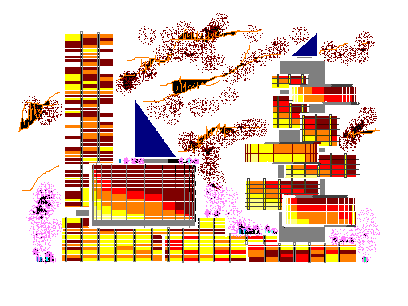|
USA Real Estate Bubble IF Any Will Crash
Stephen Chung Managing Director
Zeppelin Real Estate Analysis Limited
July 2005
A friend from the USA has emailed me an article which author-analyst thinks there is now a real estate bubble in the USA. Apparently my friend does not feel there is one judging from his tone but nonetheless he asked for my views. The following is abstracted from the reply I gave him: I (i.e. your humble author) have been reading much about USA and even global real estate bubbles in the local and foreign media. Judging whether there are bubbles is always a difficult task and almost always involves a bit of subjectivity which in turn relates to the analyst's past experience, investment behavior, and / or even personal values.
Being thousands of miles away from the USA, I am handicapped in not
being able to really 'feel' the market sentiment e.g. whether people
talk about real estate in typical lunches, dinners, or family-friend
gatherings etc. Nonetheless, based on the information and data I have read
to date, I am inclined to think there is a bubble in some of the real estate
markets in the USA. But then again, having bubbles does not automatically
translate into immediate dooms (and bubbles can last quite a while), and
having NO bubbles does not automatically mean that prices will ONLY go up.
Yet I do think some form of crashes will happen assuming things
continue along the current path and that there are real estate bubbles. This
may include other markets such as those in Europe but I will guess the USA
ones will have more global impact. Apart from the usual rationale, some of
my reasons for expecting a crash are as follows: Hope this would be of interest and use. Note* = Hong Kong real estate prices dropped BY (not to) almost 70% from the 1997 peak levels to the mid 2003 troughs. Prices have since recovered some 60% on average. This steep drop was in part due to the HK$ to US$ peg (HK$7.78 = US$ 1.00) but that alone could not have explained the whole story. Notes: The article and/or content contained herein are for general reference only and are not meant to substitute for proper professional advice and/or due diligence. The author(s) and Zeppelin, including its staff, associates, consultants, executives and the like do not accept any responsibility or liability for losses, damages, claims and the like arising out of the use or reference to the content contained herein. |
Phone (852) 37576388 Fax (852) 37576399 E-mail contact@real-estate-tech.com
Address c/o Zeppelin, Unit 1007, 10/F, CCT Telecom Building, 11 Wo Shing Street, Shatin, NT, Hong Kong
Copyright rests with Zeppelin and/or relevant authors
